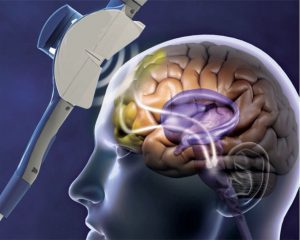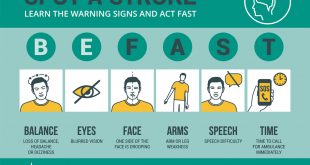Neurofeedback and TMS After Emotional or Physical Trauma


Physical illness can also be both a traumatic and a life changing event. Symptoms such as fatigue, depression, anxiety, sleep disturbances, and brain fog are commonly found in individuals with long haul COVID-19. A recent comprehensive study (published in the British Medical Journal in February 2022) showed that people who have recovered from COVID-19 — even mild cases — are at a significantly increased risk of developing anxiety, depression, substance abuse and cognitive impairment.
The study looked at millions of health records over the course of a year. It found an increased risk of 35% for anxiety disorders, 39% for depressive disorders, 38% for stress-related conditions and 41% for sleep problems. The risk for opioid use increased by 76%, and the risk for cognitive decline increased by 80%.
Trauma, whether it be from physical, emotional, or infectious (SARS-CoV-2) causes, leaves an imprint in the brain that can frequently be seen as brainwave imbalances. Although there are specific brainwave patterns that are associated with depression, ADHD, anxiety, insomnia, and trauma, most physicians or therapists never consider performing a brain map or qEEG to look for the effects of trauma on the brain.
If You Don’t Look, You Won’t Find It
Getting checked for brainwave imbalances is the first step on the road to recovery. The negative effects of trauma can be seen throughout different regions of the brain by looking at the shape and frequency of the brainwaves in those regions. Once the trauma pattern is identified, an effective treatment program can be offered.
Bring Your Brain Back Into Balance With Neurofeedback or PrTMS
Transcranial Magnetic Stimulation (TMS) is a drug-free, painless, non-invasive treatment therapy that uses magnetic pulses to stimulate activity in the brain. There are several TMS medical devices cleared by the FDA for use in treating major depressive disorder, obsessive-compulsive disorder, and migraine headaches.
An updated version of TMS, Personalized repetitive Transcranial Magnetic Stimulation (PrTMS), is now available at the Brain Wave Center in Sarasota, Florida. PrTMS uses very mild magnetic pulses to regulate out-of-sync brain activity in specific brain areas. The personalization of PrTMS, as compared with TMS, allows for a gentle approach for the healing of depression, brain fog, insomnia, head trauma, PTSD, etc. Unlike traditional TMS where all clients receive the same treatment therapy, PrTMS incorporates diagnostic assessments and a brain function analysis for a more individualized treatment plan designed to provide optimal results.
Research suggests that PrTMS may be helpful for those individuals suffering from a variety of mental health conditions, and for healthy individuals, such as athletes, who are interested in high-level human performance. It has shown some significant success in the treatment of depression, anxiety, PTSD, insomnia, long haul COVID brain fog, traumatic brain injury, and autism spectrum disorders.
How does neurofeedback specifically help in the treatment of depression and other mental health conditions?
Depression and other common mental health conditions such as anxiety, PTSD, and attention deficit hyperactivity disorder (ADHD) are accompanied by abnormal brain electrical activity. Just as the electrical activity of the heart can be determined by an EKG, brain electrical activity can be observed by qEEG brain mapping and used by neurofeedback equipment to train the brain back to more harmonious and healthy brain activity. As brain activity becomes more regulated and healthier, the symptoms of out of sync brain electrical activity – depression, anxiety, PTSD, ADHD, etc. become reduced or eliminated.
Neurofeedback retrains your brainwaves back to a state of healthy regulation. Several research studies have suggested that neurofeedback can be helpful for trauma survivors (e.g., van der Kolk et al., 2016; Brown, Clark, & Pooley, 2019).
A recent study, performed in association with The Brainwave Center, measured the impact of neurofeedback on survivors of trauma. After completing 20 sessions of neurofeedback, the following positive results were observed:
• Increase in overall health
• Decrease in depression
• Increase in sleep quality
• Decrease in PTSD
• Increase in happiness
• Increase in feeling like you matter
• Increase in emotional regulation (emotional awareness, emotional clarity, goal directed behavior, and acceptance of emotional responses)
Have You Had A Comprehensive Assessment?
At The Brain Wave Center, we support adults, teens, and children in having a happy and healthy brain. To free yourself of your emotional struggles and embark on a path toward optimal emotional health and wellness, it’s extremely important that a comprehensive assessment takes place to determine the underlying issues and to establish a correct diagnosis.
Parents and teachers can often tell that there is something different about their child’s behavior. Does your child have anxiety? Depression? Attention Deficit Disorder (ADD)? Is your child exhibiting the effects of trauma? You can find out with comprehensive testing and assessment!
The diagnostic part of The Brain Wave Center evolved from requests from our partners, such as Easterseals and The Florida Center for Early Childhood, regarding the backlog they have for children requiring neuro-psychological assessments.
More Than Just A Diagnosis
Our team incorporates proven testing and neuro-psychological assessment methods backed up by qEEG Brain Map analysis to accurately identify underlying issues and correctly identify appropriate therapies. Then we provide you with a plan to address these issues!
Our goal is to achieve breakthrough results through innovative individualized treatment solutions.
Conclusion
The lasting effects of trauma can contribute to a wide range of emotional and physical health challenges. Unless assessed and effectively treated, these conditions can persist for decades or even a lifetime.
Isn’t it time that you found a way to free yourself from your emotional health challenges? There are effective therapies that can address the traumas that have held you back from your fullest potential! More & more people are becoming aware that it’s possible to live a happier and more healthy life. At the Brain Wave Center, we are focused on assisting everyone in improving their emotional health and overcoming brain fog, anxiety, depression, PTSD, attention deficit disorder, and other common mood disorders.
Find out today how neurofeedback and PrTMS can help you or a loved one. Call 941-552-4500
THE BRAIN WAVE CENTER
941.552.4500 • BRAINWAVECENTERS.COM
640 S. Washington Blvd., Sarasota, Florida 34236
 Southwest Florida's Health and Wellness Magazine Health and Wellness Articles
Southwest Florida's Health and Wellness Magazine Health and Wellness Articles

